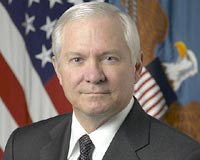 |
Brasilia (AFP) March 10, 2010 Brazil and Germany differed sharply Wednesday on whether to threaten Iran with fresh United Nations sanctions in a bid to rein in its disputed nuclear program. Brazilian Foreign Minister Celso Amorim and his German counterpart Guido Westerwelle said after talks here they agreed it was crucial to allow the creation of a new nuclear power, but clashed on the issue of sanctions. Tehran must be given further opportunities to prove its willingness to cooperate with the United Nations, Amorim argued. "We want clarity and transparency for the international community over Iran's nuclear program, but what we primarily see is Iran's willingness to negotiate," he told reporters when asked about potential UN sanctions against the Islamic republic. "There is no reason not to negotiate with Iran. It is necessary to show gestures of flexibility. We want a peaceful solution to the dispute without a great cost to the people of Iran." After the Brasilia talks, Westerwelle said he saw clear differences in the threat posed by Iran's nuclear ambitions. "We live on different continents and the distance to Iran between Brazil and Europe is great," Westerwelle said, saying European powers were "deeply worried" by Tehran's sensitive nuclear work. "We remain ready to negotiate. But since we have had the impression that our outstretched hand has nothing to grasp... we will have to talk about other measures." During a visit by US Secretary of State Hillary Clinton to Brazil last week, she and President Luiz Inacio Lula da Silva also clashed over how to rein in Tehran's disputed nuclear ambitions. Brazil is reluctant to back a US-led drive for a fourth set of sanctions on the Islamic republic, saying the move would likely be "counterproductive." It is a current voting member on the 15-strong United Nations Security Council, though not one of the five permanent veto-wielding members: Britain, China, France, Russia and the United States. Adoption of a resolution requires at least nine votes from the council and no veto from the permanent members. Diplomats say Brazil could abstain in a Security Council vote. Germany belongs to the so-called P5-plus-1 group which has for years spearheaded efforts to rein in Iran's nuclear program, feared by the West to mask a drive for a nuclear weapon. Iran denies the accusations, saying its program is purely for civilian nuclear energy purposes. Amorim and Westerwelle meanwhile both expressed optimism that the outlines of a free trade deal between the European Union and South America's Mercosur bloc could be hammered out by the end of the year, calling it key for both their economies. The EU and Mercosur began free trade talks in 1999, but they stalled in 2004. Brazil is the fourth and final country on Westerwelle's Latin American tour which began Sunday with an aid delivery in quake-stricken Chile and continued with stops in Argentina and Uruguay. Earlier Wednesday, Westerwelle met with development minister Miguel Jorge. Sources who took part in the talks said Jorge stressed that Brazil wanted to work closely with Germany, which hosted the soccer World Cup in 2006, in preparing for its own turn at staging the event in 2014. He said Brazil sought German cooperation in particular in modernising its stadiums with solar technology. Westerwelle said German firms were strongly interested in developing the civilian use of nuclear energy in Brazil as well as renewable energy. Germany is Brazil's fourth biggest trade partner after China, the United States and Argentina, with trade volume in 2008 of 18.1 billion euros (24.7 billion dollars). Brazil forecasts about five-percent economic growth this year.
Share This Article With Planet Earth
Related Links Learn about nuclear weapons doctrine and defense at SpaceWar.com Learn about missile defense at SpaceWar.com All about missiles at SpaceWar.com Learn about the Superpowers of the 21st Century at SpaceWar.com
 Gates 'hopeful' of Saudi support for Iran sanctions
Gates 'hopeful' of Saudi support for Iran sanctionsRiyadh (AFP) March 11, 2010 US Defense Secretary Robert Gates appealed to Saudi leaders on Wednesday to back a US-led drive for tough sanctions against Iran in a visit to Riyadh and came away "hopeful," his press secretary said. Gates met King Abdullah and the crown prince as part of the Obama administration's diplomatic push for fresh UN sanctions on Iran, seeking help from an oil-rich ally amid continued opposition f ... read more |
|
| The content herein, unless otherwise known to be public domain, are Copyright 1995-2010 - SpaceDaily. AFP and UPI Wire Stories are copyright Agence France-Presse and United Press International. ESA Portal Reports are copyright European Space Agency. All NASA sourced material is public domain. Additional copyrights may apply in whole or part to other bona fide parties. Advertising does not imply endorsement,agreement or approval of any opinions, statements or information provided by SpaceDaily on any Web page published or hosted by SpaceDaily. Privacy Statement |